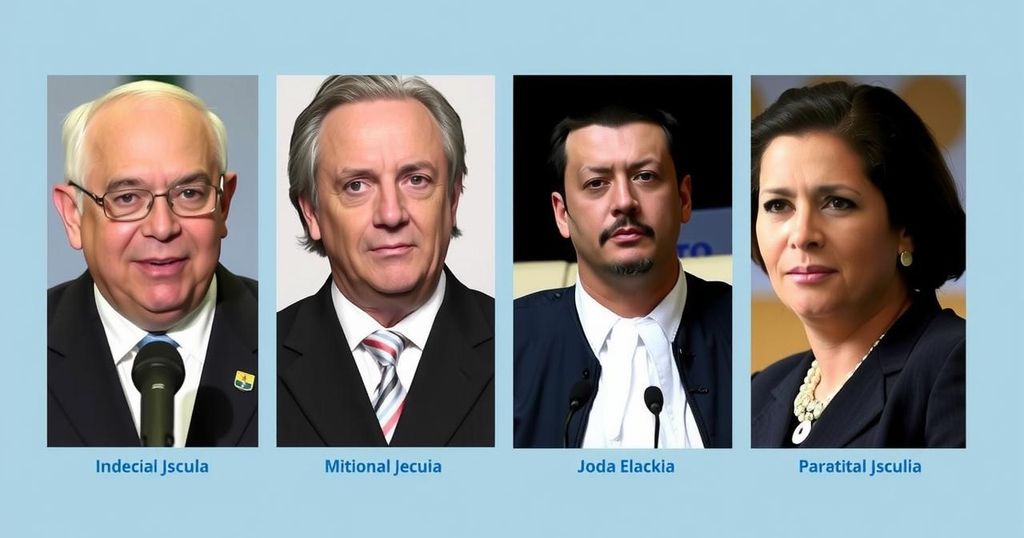Bolivia’s Divisive Judicial Elections: A Crisis of Democracy and Integrity

Bolivia is conducting a contentious popular vote for its top judges, a system unique globally. Despite a ban on campaigning, candidates have found indirect ways to promote themselves. This electoral process has sparked criticism from voters who feel it has politicized the judiciary, reducing judges to political pawns. The elections, delayed due to internal party conflicts, only partially fill the vacancies, with broader implications for democracy and judicial integrity in Bolivia.
Bolivia is conducting a divisive popular vote to elect its top judges, a unique practice as it is the only country globally that holds such elections. Even though campaigning is officially prohibited, candidates have ingeniously found ways to promote themselves, utilizing packaging and official materials. Despite the electoral system aiming to enhance democracy, many Bolivians feel it has instead turned the judiciary into a politically motivated entity. Many voters express apathy towards the process, choosing to make arbitrary decisions such as flipping coins when casting ballots.
The current electoral cycle has been marred by a power struggle between President Luis Arce and former President Evo Morales, particularly concerning control over the Constitutional Court, which has significant influence over political survival. The situation was exacerbated by a late delay in the elections, justified by Arce as a necessity to resolve chaos within the ruling party. Critics argue this postponement undermines the integrity of the judicial system. In this partial election, only four out of nine seats on the Constitutional Court are contested, leaving the majority of judges unchanged, a move that raises concerns about the court’s growing power.
Historically, previous judicial elections in Bolivia, notably those under Morales in 2011 and 2017, resulted in low voter turnout and widespread disillusionment. Morales’ controversial decisions and manipulation of the judicial framework have precipitated crises in Bolivian politics. The current political landscape draws international attention, especially as Mexico prepares to implement a similar overhaul of its judiciary, reflecting on Bolivia’s electoral experience.
The judicial election process in Bolivia is controversial as it marks a significant shift from a merit-based nomination system to a popular voting format. This framework, first established under Evo Morales in 2009, was intended to create a more democratic judiciary but has resulted in perceptions of politicization and a lack of impartiality. As Bolivia stands as the only country to hold such elections for its top judicial posts, this event has sparked debates on the integrity of electoral systems and the influence of power struggles on judicial independence. Recent political dynamics, particularly involving President Luis Arce and former President Evo Morales, have intensified scrutiny of the electoral process and its implications for Bolivian democracy.
The judicial elections in Bolivia reveal the complexities and potential pitfalls of a politicized judicial system. With the process overshadowed by internal party conflicts and public disillusionment regarding candidate selection, concerns about the erosion of democratic principles continue to grow. Additionally, the attention from neighboring countries suggests that Bolivia’s electoral outcomes may influence broader regional policies regarding judicial reforms. Ultimately, the efficacy of this electoral approach remains questionable as Bolivia navigates its political landscape towards upcoming presidential elections in 2025.
Original Source: www.voanews.com







